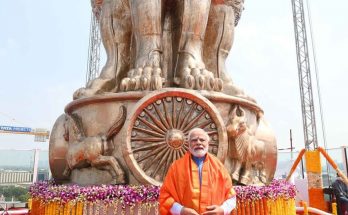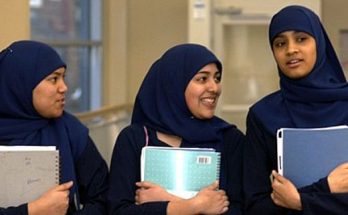
Russia, Turkey and Iran’s efforts aimed at solving the Syrian crisis has borne fruit paving the way for the holding of the future National Dialogue Congress in Sochi, Turkish politicians have told Sputnik. One of them suggested that the center of the negotiation process has shifted from Geneva to Asia with the US’ influence on the talks waning.
The recent high-level summit in the Russian Black Sea city of Sochi held by the leaders of Russia, Turkey and Iran has become a logical continuation of the Astana peace process over Syria and opened the door to the upcoming Syrian National Dialogue Congress, politicians told Sputnik Turkey.
“From the outset we said that regional cooperation can contribute to the maintenance of security,” Turkish MP from the ruling Justice and Development Party (AKP) Berat Conkar, co-chairman of the EU-Turkey Joint Parliamentary Committee, said. “Based on the same goals pursued by Russia, Iran and Turkey, we are actively moving towards a positive outcome in resolving the Syrian conflict… For our region, such events as the last summit, are of much greater importance, [since they are aimed at] ending the chaos that prevails here and ensuring order and prosperity in the first place.”
On November 22 the leaders of Russia, Turkey and Iran met in the Black Sea resort city of Sochi to discuss the progress that has been made in the Syrian settlement process and the steps necessary to ensure the complete and long-term normalization of the political and security situation in the country.
Fighters of Syrian Democratic Forces jubilate aboard an armoured fighting vehicle after Raqqa was liberated from the Islamic State militants, in Raqqa, Syria October 17, 2017
Commenting on the Russo-Turkish-Iranian synergy the politician emphasized the leaders’ unanimous support of Syria’s territorial integrity, the fight against terrorist organizations and the political model chosen in accordance with the popular will.According to Conkar, the international community should participate in the process of resolving the Syrian crisis and provide the necessary support to the people of Syria.
Ozturk Yilmaz, the Turkish opposition Republican People’s Party (CHP) deputy chair responsible for foreign relations, highlighted that Ankara’s attitude to the Syrian conflict has undergone serious changes. The parliamentarian noted that the AKP had initially taken a pro-American stance, however, when the US turned its back on it, the ruling party began to strengthen its ties with Russia.
While previously the AKP demanded that Syrian President Bashar al-Assad should step down, today it has become clear that the participation of the Syrian leader in the peace process, at least for a certain period of time, is necessary, the politician pointed out.”Although the official anti-Assad rhetoric still remains in place, there is actually a tendency for accepting the idea of the necessity to establish dialogue with the Syrian government,” Yilmaz said.
The parliamentarian underscored that the subsequent negotiations over Syria require careful discussion on the issues of the new constitution, the territorial integrity of the state, election procedures and the possibility of an amnesty to the opposition and other society groups.”Additionally, the reconstruction of Syria will require about $1 trillion,” the opposition parliamentarian remarked raising the question as to what the contribution of the international community will be.
Rouhani Assures Assad of Iran’s Support for Syria in Combating Terrorism
According to Yilmaz, the aforementioned issues cannot be solved solely through talks in Astana and Sochi: “It will be necessary to ensure a certain balance during the negotiations in Geneva between Turkey, Russia and Iran on the one hand and the US and their allies on the other hand; in this case there will be an opportunity to open the door to the political settlement in Syria.”Hasan Bitmez, the deputy head of the opposition Turkish Saadet Party (Felicity Party), believes that the Sochi summit has become the logical result of Russia, Turkey and Iran’s cooperation within the framework of the Astana format.
For his part, Yunus Soner, deputy chairman of Turkey’s left-wing Vatan Party (the Patriotic Party) stressed that anti-Assad stance did not actually meet Turkey’s national interests. Echoing Yilmaz, Soner noted that at the root of the anti-Assad approach lay a pro-American policy of Turkey’s ex-Prime Minister Ahmet Davutoglu.
“However, Turkey’s national interests indicate to the government that this position cannot be maintained in the future,” Soner underscored. “Thus, Turkey, albeit slowly, will abandon its anti-Assad stance.”A Kurdish fighter from the People’s Protection Units (YPG) carries his weapons as he walks along a street in the northeastern city of Hasaka, Syria, August 21, 2016.
Syrian National Dialogue Congress and the Kurdish Issue
The Turkish politicians positively evaluate the upcoming Syrian National Dialogue Congress, which is likely to gather Syrian opposition and government delegates in Russia’s Sochi in December.”We very positively look at the fact that the forces representing Syria will meet in Sochi,” Soner said. “The launch of the Syrian National Dialogue Congress in Sochi also means that the center of the negotiation process is transiting from Geneva to Asia. Due to this, the degree of US influence on the talks will be significantly reduced.”However, the issue of the Kurdish representation at the meeting remains a sensitive one for Ankara, which considers the Kurdish People’s Protection Units (YPG) and the Democratic Union Party (PYD) affiliates of the Kurdistan Workers’ Party (PKK) — designated as a terrorist organization in Turkey
Speaking to Sputnik, Conkar strongly opposed the PYD’s participation in the future summit: “A terrorist organization is a terrorist organization… In no political process they could be seen as a legitimate party.”Turkey’s President Recep Tayyip Erdogan, left, and US President Donald Trump shake hands prior to their meeting in New York, Thursday, Sept. 21, 2017. Erdogan is in New York for the United Nations General Assembly.
For his part, Yilmaz specified that Turkey is “not against the participation of Kurds [in the Syrian National Dialogue Congress], but we have some sensitivity about some groups: PYD, YPG, which have a link with PKK [Kurdistan Workers’ Party].”According to Bitmez, Ankara’s position is reasonable. The politician drew attention to the fact that the US is likely to support the PYD following the defeat of Daesh (ISIS/ISIL). At the same time, he noted, the American military are seemingly inclined to continue their presence in the region.”Given this sensitivity on the PDS issue, demonstrated by Turkey, is quite understandable and natural,” Bitmez stressed.Meanwhile Turkish Deputy Prime Minister Bekir Bozdag told Kanal 24 TV that “if the United States does not keep its promise to cease military assistance to the YPG, then [the United States] would be deceiving the whole world.”
While Turkey, being one of the three Syrian ceasefire regime guarantors, continues de-escalation efforts in Syria in the framework of the Astana process, the US has been providing support for the Syrian Kurdish Democratic Union Party (PYD) and the YPG, as well as the Syrian Democratic Forces, aimed at fighting Daesh.
Courtesy:Sputnik News
Author Profile
- India Writes Network (www.indiawrites.org) is an emerging think tank and a media-publishing company focused on international affairs & the India Story. Centre for Global India Insights is the research arm of India Writes Network. To subscribe to India and the World, write to editor@indiawrites.org. A venture of TGII Media Private Limited, a leading media, publishing and consultancy company, IWN has carved a niche for balanced and exhaustive reporting and analysis of international affairs. Eminent personalities, politicians, diplomats, authors, strategy gurus and news-makers have contributed to India Writes Network, as also “India and the World,” a magazine focused on global affairs.
Latest entries
 In ConversationJuly 26, 2024India-Italy defence collaboration can extend to third countries: Anil Wadhwa
In ConversationJuly 26, 2024India-Italy defence collaboration can extend to third countries: Anil Wadhwa In ConversationJuly 23, 2024Italy views India as a key partner in Indo-Pacific: Vani Rao
In ConversationJuly 23, 2024Italy views India as a key partner in Indo-Pacific: Vani Rao DiplomacyJune 29, 2024First BRICS unveils a roadmap for boosting tourism among emerging economies
DiplomacyJune 29, 2024First BRICS unveils a roadmap for boosting tourism among emerging economies India and the WorldJune 11, 2024On Day 1, Jaishankar focuses on resolving standoff with China
India and the WorldJune 11, 2024On Day 1, Jaishankar focuses on resolving standoff with China






